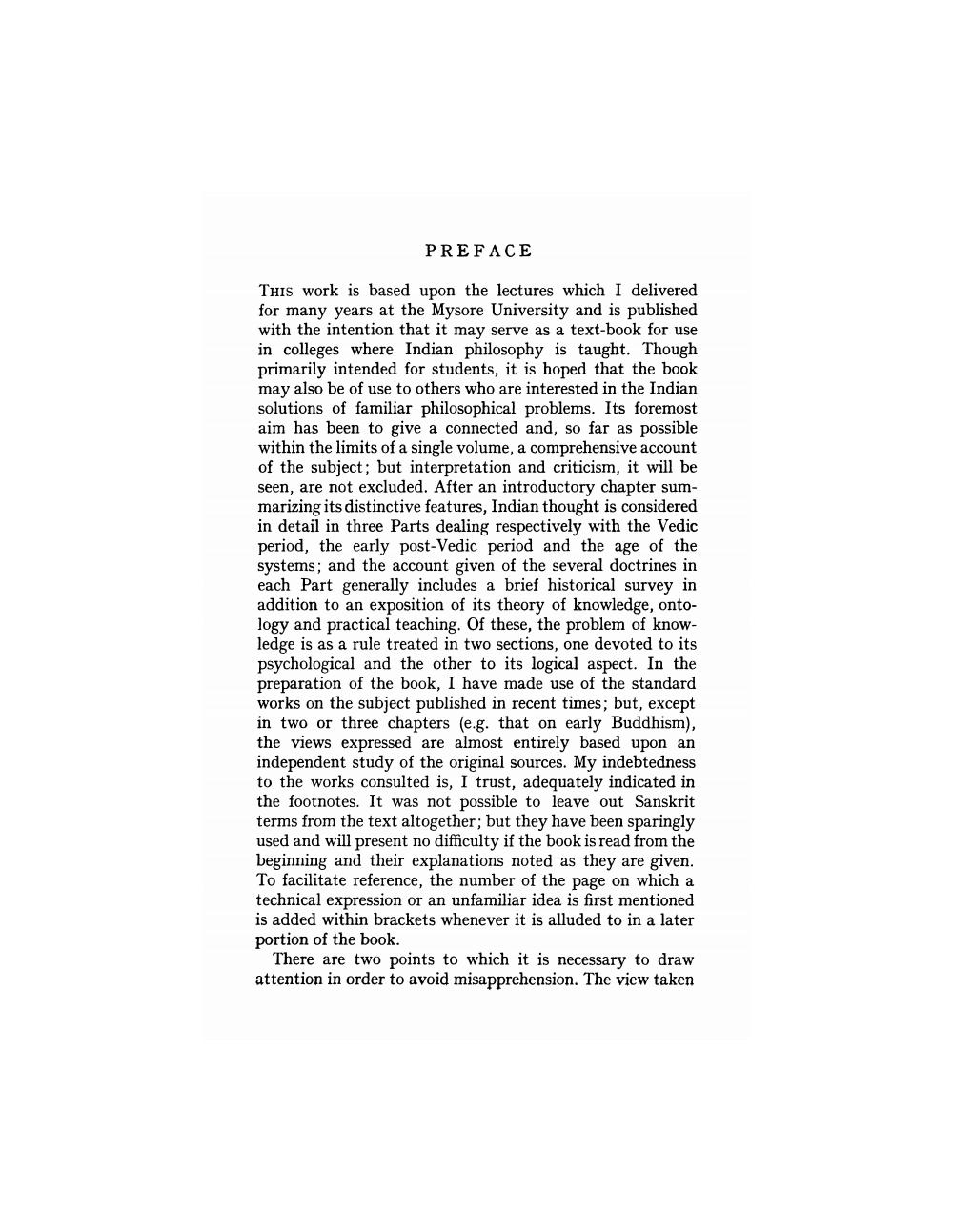________________
PREFACE
This work is based upon the lectures which I delivered for many years at the Mysore University and is published with the intention that it may serve as a text-book for use in colleges where Indian philosophy is taught. Though primarily intended for students, it is hoped that the book may also be of use to others who are interested in the Indian solutions of familiar philosophical problems. Its foremost aim has been to give a connected and, so far as possible within the limits of a single volume, a comprehensive account of the subject; but interpretation and criticism, it will be seen, are not excluded. After an introductory chapter summarizing its distinctive features, Indian thought is considered in detail in three Parts dealing respectively with the Vedic period, the early post-Vedic period and the age of the systems, and the account given of the several doctrines in each Part generally includes a brief historical survey in addition to an exposition of its theory of knowledge, ontology and practical teaching. Of these, the problem of knowledge is as a rule treated in two sections, one devoted to its psychological and the other to its logical aspect. In the preparation of the book, I have made use of the standard works on the subject published in recent times; but, except in two or three chapters (e.g. that on early Buddhism), the views expressed are almost entirely based upon an independent study of the original sources. My indebtedness to the works consulted is, I trust, adequately indicated in the footnotes. It was not possible to leave out Sanskrit terms from the text altogether; but they have been sparingly used and will present no difficulty if the book is read from the beginning and their explanations noted as they are given. To facilitate reference, the number of the page on which a technical expression or an unfamiliar idea is first mentioned is added within brackets whenever it is alluded to in a later portion of the book.
There are two points to which it is necessary to draw attention in order to avoid misapprehension. The view taken




